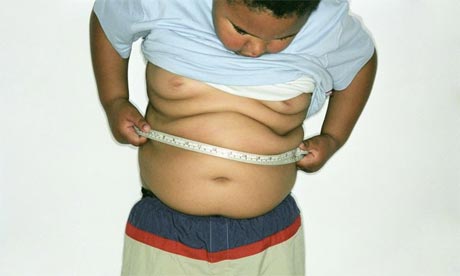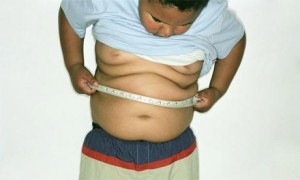By Bernice Alhassan

Recently, I attended a children’s party and observed that half the kids there were overweight. This reminded me of the many other times I had seen kids who were not only overweight, but obese. The frequency with which I come by such kids is on the increase. Overweight children used to be a rare sight to behold back in the day but presently, it is a prevalent trend in our society and is increasingly becoming a serious medical problem. As a matter of fact, obesity is considered one of the biggest challenges in paediatric health of recent. This development is a result of changing life style and eating patterns persistent in the society. Fast foods and quick service restaurants are now the order of the day. Parents have replaced healthy diets for their children with noodles, ice cream, snacks and the likes. What is the result of this? Children who are too fat to carry their own weight, let alone run an errand effectively.
As many as 15% of children (aged 6 to 11years) are obese and the numbers are only increasing with time. A lot of kids are spending less time exercising and more time in front of the television, computer or video game console. Also, the busy schedules of parents have made it difficult for them to plan and cook nutritious meals. Unfortunately, the substitutes for these healthy meals are the earlier mentioned junk foods which are often high in fat and calories.
Obesity has a profound effect on your child’s life both now and in the future. It increases his/her risks of numerous health challenges and can further create emotional and social problems. Some of them get taunted by their peers at school and could be tagged all sorts of nasty names, thereby leading the child into depression and withdrawal. A low self esteem is also another negative effect of obesity in children. Subsequently, obese children are more prone to being obese adults and these could increase their risks of severe health challenges such as diseases of the heart and even stroke.
Preventing your child(ren) from being overweight starts with reviewing and making important changes to the way your family eats and exercises. Note that a body mass that is 20% higher than what is obtainable for a child of his/her height and age range, puts your child on the obese side of the line. As far as prevention and management of obesity in children is concerned, it is truly a challenge for parents. However, helping these kids begins with parents who lead by example. So of the steps that parents should take in effectively managing obesity in their children are:
* Encourage physical activities and slightly vigorous exercises such as running, hiking, jugging, swimming, cycling, etc.
* Make sure that your child eats his/her meals slowly.
* Restrict the amount of time your child(ren) spend in front of the TV or playing video/computer games. This is because these activities burn fewer calories.
* Opt for low fat or non-fat dairy products, breads and as much as possible, serve a variety of vegetables, cereals, beans, meat, mixed fruits and salads, etc.
* Help them avoid consumption of sugary products, especially those high in corn syrup or fructose derivatives such as regular soda, pop soda or cola.
* Encourage your child(ren) to participate in sporting activities at school. Offer to take her to dance classes or enroll him in the school’s football league.
* Do not allow your children to watch TV during meals as the distraction of the television makes them overeat.
* Do not forbid them from snacking. Instead, plan healthy snacks for them regularly.
* Last but not least, give your child(ren) those occasional treats like ice creams, chips, pies, cakes, etc; but make sure there are only occasional.
For the sake of the now and the future of your child, take time out to monitor your children and watch what they eat. You’ll be doing both you and them a lot of favour and they’ll be sure to thank you for it in no time.


